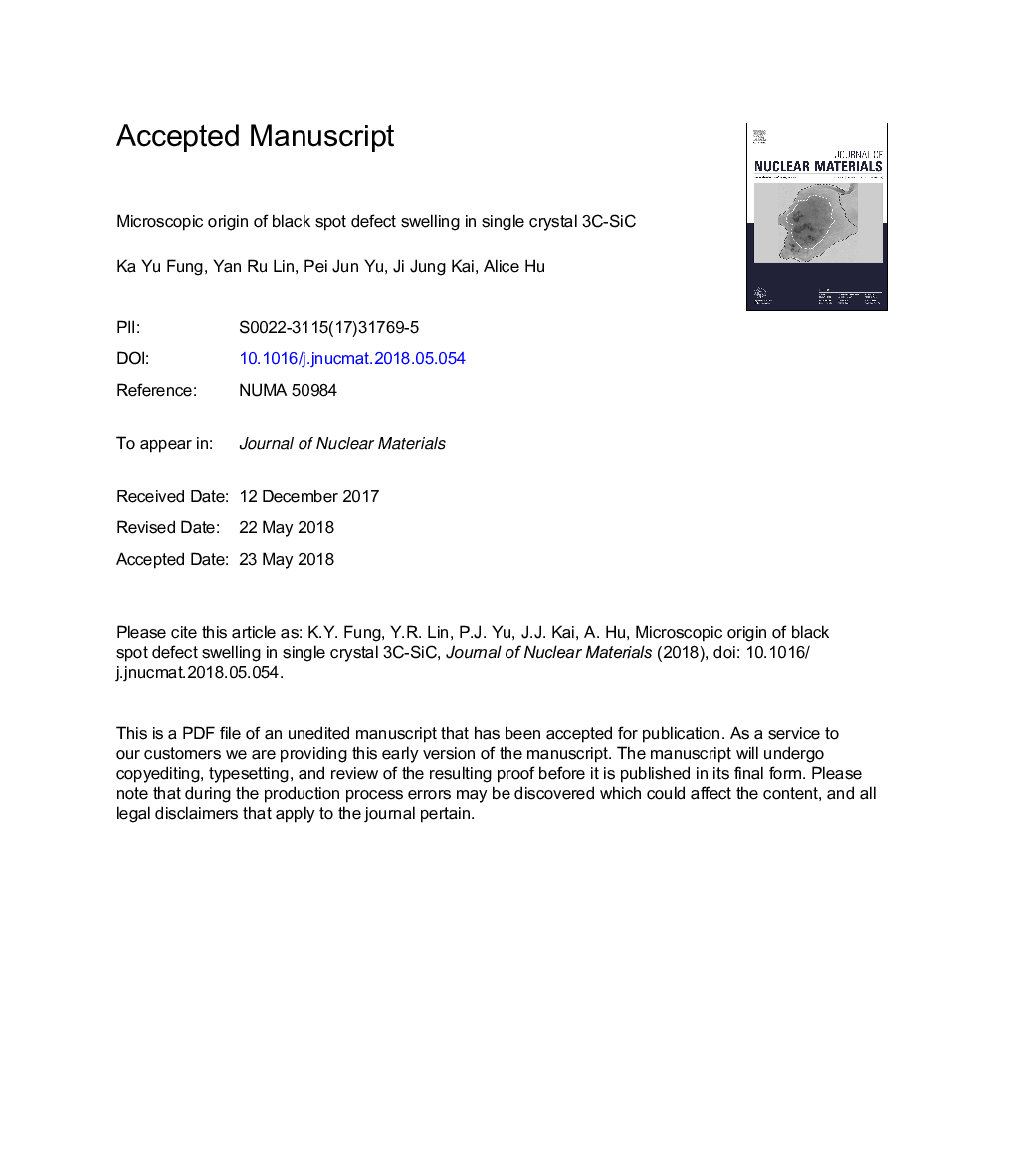| Article ID | Journal | Published Year | Pages | File Type |
|---|---|---|---|---|
| 7963070 | Journal of Nuclear Materials | 2018 | 13 Pages |
Abstract
In this study, we perform a series of simulation of a high-energy particle irradiation on a 3C-SiC at low temperature through molecular dynamic analysis. In order to determine the formation mechanism of black spot defects (BSD), the evolution of defect clusters during the cascade process is examined. Simulation results show that there are more isolated interstitials scattering across the structure while the less mobile vacancies are concentrated in defect clusters, which is consistent with the depleted zone theory proposed by Brinkman [3]. These results also match the TEM observation and simulation results done by Lin et al. [4] and support the argument that black spot defects are in fact vacancy-rich regions, with individual interstitials spreading into bulk, stretching the lattice structure.
Keywords
Related Topics
Physical Sciences and Engineering
Energy
Nuclear Energy and Engineering
Authors
Ka Yu Fung, Yan Ru Lin, Pei Jun Yu, Ji Jung Kai, Alice Hu,
